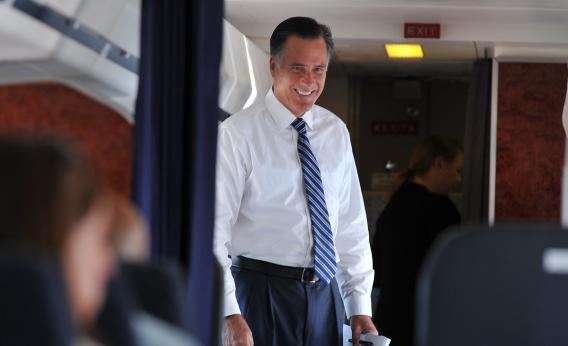Since early August, Mitt Romney has been dogged by accusations that he’s plotting a large tax increase on the middle class. The reason is that he wanted to pair a Reagan/Bush style large decrease in tax rates with an Austerity Era pledge to not increase the deficit. The method of choice? Pay for the rate cuts with base-broadening elimination of deductions.
Romney didn’t specify which deductions he meant, but the Tax Policy Center ran the numbers and found that under any mathematically workable scenario, this would lead to a substantial increase in the tax bill for middle-class families. Ever since that study came out, Romney’s been denying it while also denying that he plans a huge increase in the deficit. As a result, the whole policy side of the campaign has degenerated into nonsense. Digital video of Romney complaining that 47 percent of Americans don’t pay any federal income taxes makes it difficult to believe that Romney really has some deep-seated aversion to middle-class tax hikes. Given that, maybe it’s time for him to stop trying to wriggle away from his initial reform proposal and start defending it. After all, it makes some sense.
Conservatives worry a lot that high taxes discourage growth. Liberals tend to downplay this. One way they downplay it is by noting that in addition to the incentive effect (higher rates give you less reason to work), there’s an income effect (less money in your pocket gives you more reason to work). The genius of the Romney reform is that from a labor-supply viewpoint it pushes on both levers.
Thanks to the lower marginal tax rates, under Romney’s plan everyone would face lower taxes on the next dollar of income he or she earns. That’s a stronger incentive to work. But thanks to the elimination of deductions, most middle-class families would see their total tax bill go up. Those lower after-tax incomes also create a stronger incentive to work. It’s a double whammy, staying revenue-neutral while turning the tax code into a much more work-friendly document. From a Nicki Minaj/Casey Mulligan point of view, those stronger work incentives might be enough to end the recession all on its own. But even if you don’t buy that account of the business cycle (I don’t), under basically any account this would be a pro-growth tax reform. The Romney campaign hasn’t been willing to make the case for it, since they haven’t been willing to admit that this is what their plan applies. Monday’s gaffe might be a chance to rethink that decision.
